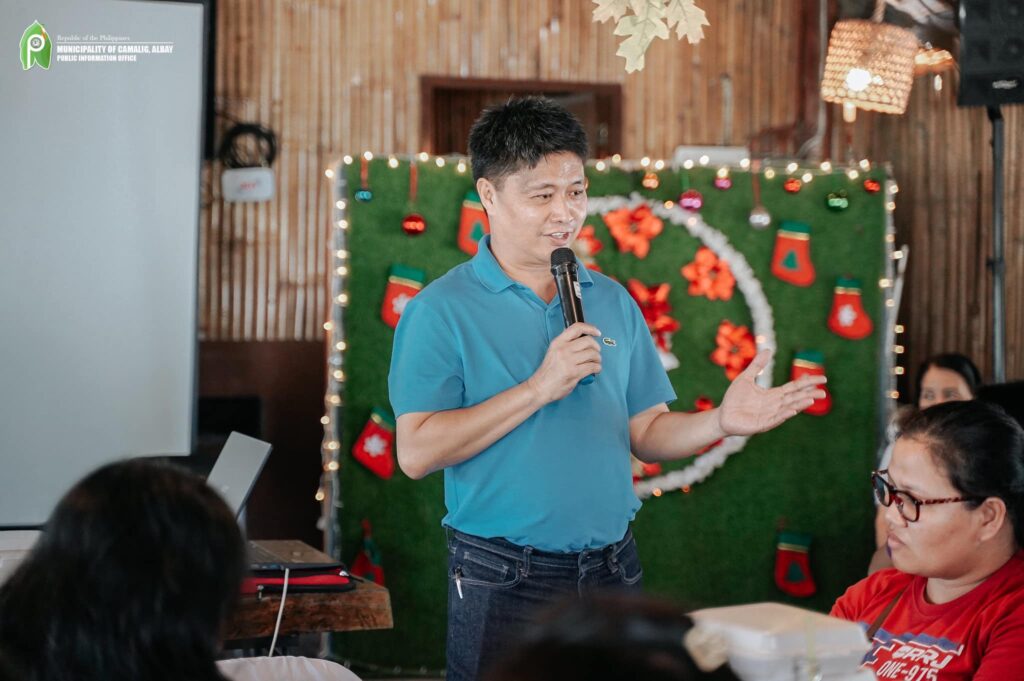
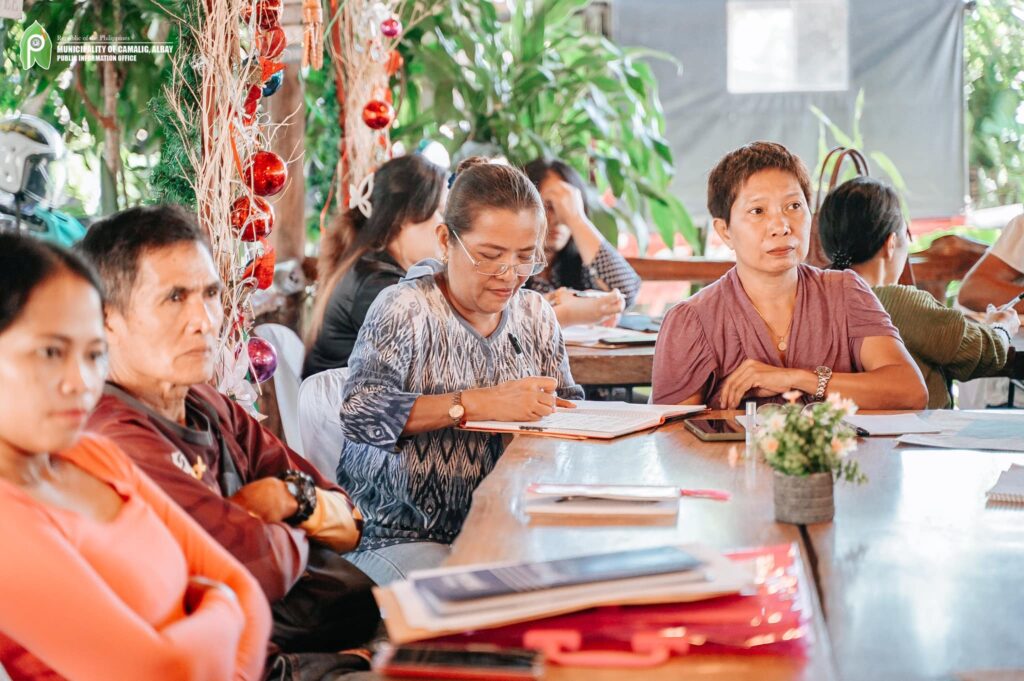

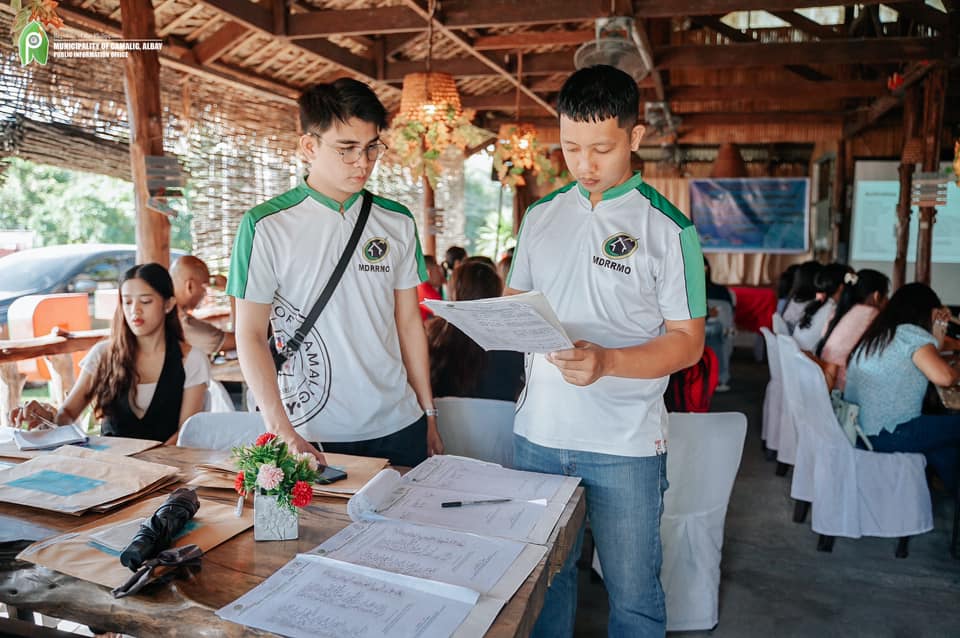
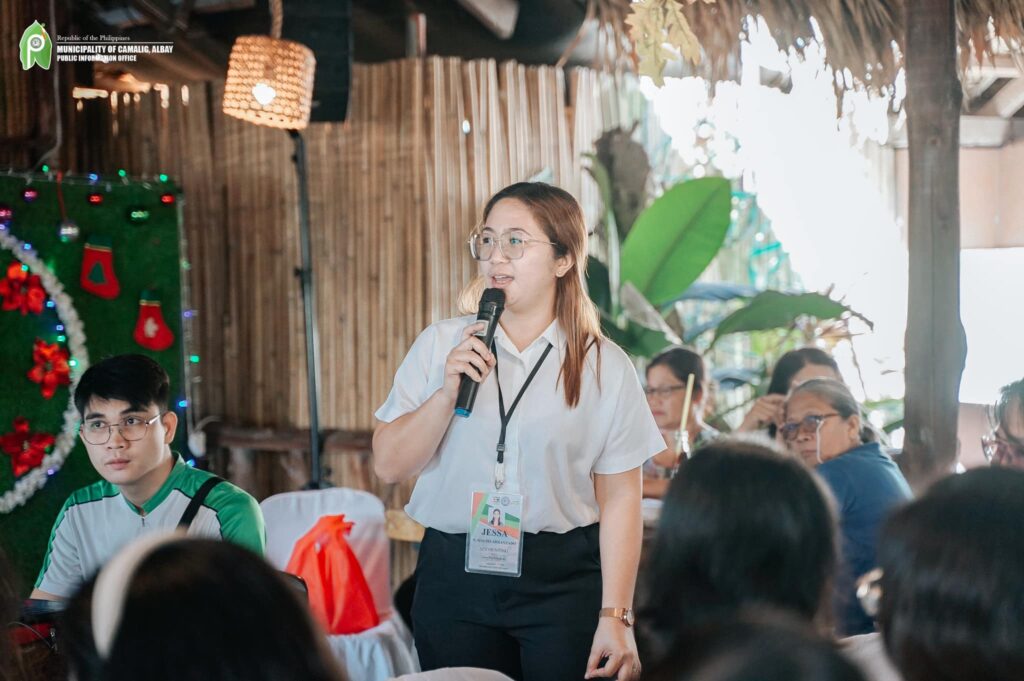

The Municipal Disaster Risk Reduction & Management Office (MDRRMO) holds a feedbacking session and validation of Barangay Disaster Risk Reduction and Management Plans (BDRRMPs), paired with an  orientation for newly-appointed and re-appointed barangay treasurers and secretaries purposely to facilitate the transition process at the grassroots level, Black Pepper Resto, Brgy. Salugan.
orientation for newly-appointed and re-appointed barangay treasurers and secretaries purposely to facilitate the transition process at the grassroots level, Black Pepper Resto, Brgy. Salugan.
 orientation for newly-appointed and re-appointed barangay treasurers and secretaries purposely to facilitate the transition process at the grassroots level, Black Pepper Resto, Brgy. Salugan.
orientation for newly-appointed and re-appointed barangay treasurers and secretaries purposely to facilitate the transition process at the grassroots level, Black Pepper Resto, Brgy. Salugan.Said training seeks to improve and revitalize the participants’ functions in their respective posts, highlighting their crucial role in the efficient functioning of the barangay local governance.
In his address, Camalig Local Chief Executive, Hon. Carlos “Caloy” Irwin G. Baldo, Jr., encouraged the participants, stating, “Pag indi aram, mag unga”, emphasizing the importance of good relationships within fellow officials and the community. Mayor Caloy also expressed that a positive working environment would make their jobs more enjoyable, “Kung maray ang pagiribaan, mas maeenjoy nyo ang trabaho nyo. And gawin nyo po ang trabaho nyo”.
“Ang training po na yadi, about learning, re-learning, and co-learning”,  MDRRMO chief, Mr. Rommel V. Negrete, Jr., PhD, JD, D Hum, emphasized the importance of the training’s approach, which aims to promote an unhampered learning environment, revitalized governmental functions, and adaptable policies and recommendations among participants.
MDRRMO chief, Mr. Rommel V. Negrete, Jr., PhD, JD, D Hum, emphasized the importance of the training’s approach, which aims to promote an unhampered learning environment, revitalized governmental functions, and adaptable policies and recommendations among participants.
 MDRRMO chief, Mr. Rommel V. Negrete, Jr., PhD, JD, D Hum, emphasized the importance of the training’s approach, which aims to promote an unhampered learning environment, revitalized governmental functions, and adaptable policies and recommendations among participants.
MDRRMO chief, Mr. Rommel V. Negrete, Jr., PhD, JD, D Hum, emphasized the importance of the training’s approach, which aims to promote an unhampered learning environment, revitalized governmental functions, and adaptable policies and recommendations among participants.The training further delved on the Republic Act No. 7160 or the Local Government Code of the Philippines, and Republic Act No. 10121, or the Philippine Disaster Risk Reduction and Management Act of 2010, 2 of the many laws which Mr. Negrete widely regards as the “bible” of public servants.
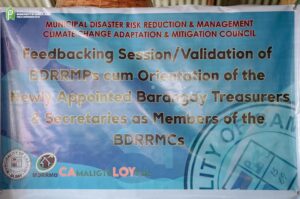 Municipal Accountant, Ms. Jessa M. Arranzado, CPA, tackled the preparation, utilization, and reporting of the BDRRM fund. She also discussed the essential functions of secretaries and treasurers, emphasizing the importance of their roles in financial management. Ms. Arranzado further addressed the observed deficiency in some treasurers’ and secretaries’ resources, such as cashbooks, journals, logbooks, and incomplete financial, legislative, and administrative documents during the transition period, underscoring the need for said issues to be immediately addressed.
Municipal Accountant, Ms. Jessa M. Arranzado, CPA, tackled the preparation, utilization, and reporting of the BDRRM fund. She also discussed the essential functions of secretaries and treasurers, emphasizing the importance of their roles in financial management. Ms. Arranzado further addressed the observed deficiency in some treasurers’ and secretaries’ resources, such as cashbooks, journals, logbooks, and incomplete financial, legislative, and administrative documents during the transition period, underscoring the need for said issues to be immediately addressed.The training also covered the master listing of the population at risk, crafting of resolutions, minutes preparation, and the basics of recording disaster incident reporting, and lastly, monitoring and evaluation of BDRRMPs.
Article by: Mr. Tim L. Florece, PIO

